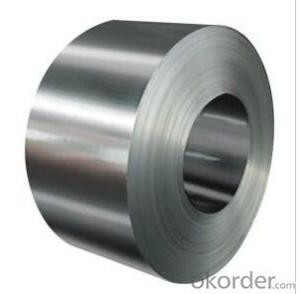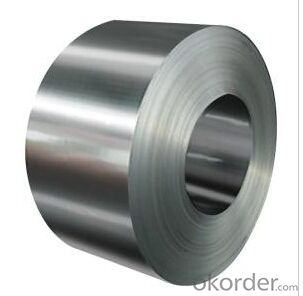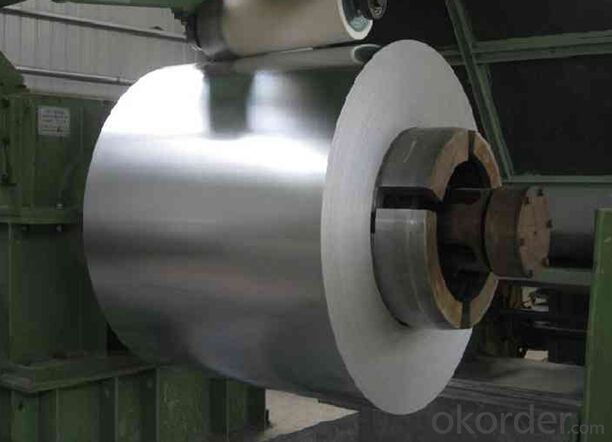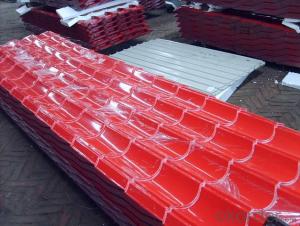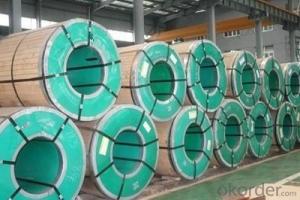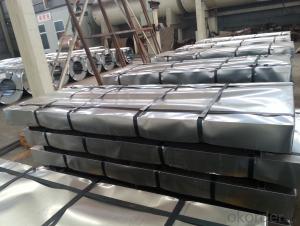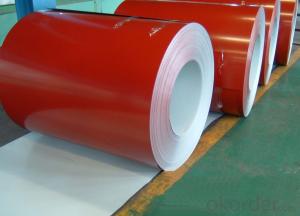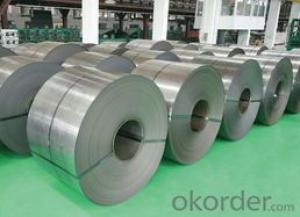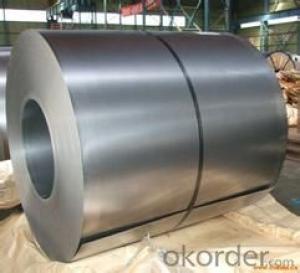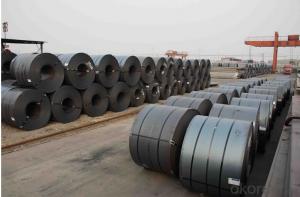Stainless Cold Steel Sheet& Coil (304/316)
- Loading Port:
- Tianjin
- Payment Terms:
- TT OR LC
- Min Order Qty:
- 25 m.t.
- Supply Capability:
- 10000 m.t./month
OKorder Service Pledge
OKorder Financial Service
You Might Also Like
Description:
Model NO.:304/316
Type:Steel Plate
Technique:Cold Rolled
Certification:ISO
Standard:ASTM, AISI, GB, JIS, DIN, BS
Stock:Stock
Surface Treatment:Coated
Special Use:Anti-Skidding/Mirror
Application:Ship Plate, Boiler Plate, Container Plate, Flange Plate
Used:Widely Used in Food Service Industry, Chemical in
Export Markets:Global
Additional Info.
Trademark:JTST
Packing:Standard Export Packing or as Your Request
Standard:304/316/201/202
Origin:China
Production Capacity:10000tons/Month
Product Description
1.Commodity: Stainless steel coil
2.Stock or not: Stock
3.Grade:
200Series: 201, 202
300Series: 301, 302, 303, 304, 304L, 316, 316L, 321
400Series: 410, 410L, 416, 420, 430, 430F
600Series: 630(17-4pH), 631
4.Description
Thicknesses: 0.4-50mm
Widths: 1,000/1,219/1,500/1,800mm
Length: Min. 1m
5. Surface finish: 2B, BA, 8K, 6K, Mirror Finished, No1, No2, No4, Hair Line with PVC
6.Manufacture technology: Cold drawn/cold rolled/hot rolled
7. Export Markets: India, Pakistan, South Korea, Brazil, Australia, South Africa, Spain, Sri Lanka, Taiwan, Hong Kong, etc.
8. Application:
1), Automotive: Automotive trim and molding/Difficult-to-form exhaust-system components, tubular manifolds, mufflers/Exhaust manifold and other exhaust-system components, catalytic converter shells, clamps
2), Construction: Gutters and downspouts, roofing, siding
3), Kitchenware: Cooking utensils, dishwashers, ovens, range hoods, refrigerators, skewers
4), chemical processing: Oil refinery equipment, oil burner and heater parts
5), Appliances: Hot water tanks, residential furnaces
6), Power generation: Heat Exchanger tubing
7), Farming: Dry fertilizer spreaders/Farm animal pens
9. Packaging Detail: Wrapped by plastic woven bags, supported by wooden frame and reinforced by iron straps.
10. Delivery Detail: Within 7days
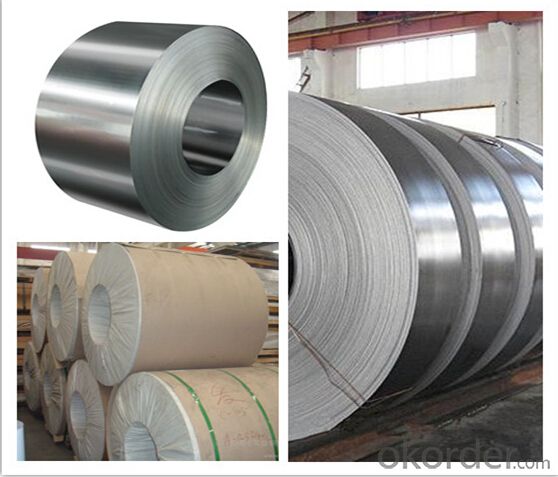
| Commodity Description: Stainless Steel Sheet | ||||||||
| 1. Thickness: | 0.2~6mm | |||||||
| 2. Width: | 1000~2500mm | |||||||
| 3. Length: | 6000mm~8000mm or as your request | |||||||
| 4. Standard: | ASTM, AISI, JIS, GB, DIN, etc. | |||||||
| 5. Chemical Composition(%) | C | Mn | P | S | Si | Ni | Cr | N |
| ≤ 0.08 | ≤ 2.00 | ≤ 0.045 | ≤ 0.030 | ≤ 0.75 | 8.00~10.50 | 18.00~20.00 | ≤ 0.10 | |
| 6. Surface: | 2B, BA, 8K, No. 1, No. 4, HL, etc. | |||||||
| 7. Technique: | Cold/Hot Rolled | |||||||
| 8. Certification: | ISO | |||||||
| 9. Package: | Standard export packing or as your request | |||||||
| 10. Application: | Widely used in food service industry, chemical industry, nuclear energy field, etc. | |||||||
| 11. Advantages: | 1. Corrosion resistance. 2. High temprature resistance. 3. High production ability. 4. Reasonable price. 5. Excellent quality. 6. Various size. | |||||||
| 12. Main Market: | North America, South America, Europe, Southeast Asia, Africa, Oceania, Middle East, Eastern Asia, Central America | |||||||
| 13. MOQ; | 2 Metric Tons | |||||||
| 14. Delivery Time: | Within 15 days | |||||||
| 15. Payment terms: | T/T, L/C, Western union | |||||||
FAQ
1.What's your MOQ?
25MT, it is for one container.
2.Do you have QC teams?
Yeah, sure, our QC team is very important, they will keep the quality control for our products.
3. What's your normal delivery time?
Our delivery time about 10-20days for standard sizes, if you have other requirements like hardness and width ,it is about 20-40days. But don't worry ,we also try our best for the delivery time ,because time longer and our cost is higher.
4.Are the products tested before shipping?
Yes, all of our PPGI and GI was qualified before shipping. We test every batch every day.
- Q: I've created something but it's a huge secret. Anyways I need to know everything and anything about steel. Like the iron steel. ANYTHING AND EVERYTHING. Best answer goes to the person with the most correct information. Please this is really important.
- If you want to know everything about steel, there's no way you're going to get an answer on Yahoo that is comprehensive enough. What you want to do is get some books on steel metallurgy, engineering properties of materials, and maybe machine design depending on your application. Topics will include molecular structure, material properties, alloying, stress and strain, work hardening, creep, computing damage and lifetime cycles, corrosion, toughness vs hardness, heat treating, and a ton of others. If you want to sharpen steel, that is a whole topic in itself concerning different blade profiles and their sharpness, edge holding, ease of sharpening, type of grind etc.
- Q: On a free standing carport with an 8 inch, 22 foot long aluminum i-beam, would a steel 8-inch i-beam be just as strong? I am looking into it since they are cheaper.
- Yield strength of aluminum vs steel beams may be a little bit higher depending on the alloy. However due to the widespread use of steel I-beams you should be able to get them for a much better price. Are you sure the existing beam is not stainless steel rather than aluminum this seems a lot more likely.
- Q: How are steel coils inspected for flatness variations?
- Steel coils are inspected for flatness variations using specialized equipment such as laser or optical scanning systems. These systems measure the surface profile of the coil and identify any deviations from the desired flatness. The data collected is then analyzed to determine the extent of the variations and whether they meet the required tolerances.
- Q: What are the different types of coatings applied to steel coils?
- There are various types of coatings that can be applied to steel coils, each with its own specific purpose and benefits. 1. Galvanized Coating: This is one of the most common types of coatings applied to steel coils. It involves the application of a layer of zinc to the steel surface. Galvanized coatings provide excellent corrosion resistance, making them suitable for outdoor applications where the steel may be exposed to moisture or harsh environmental conditions. 2. Galvalume Coating: Similar to galvanized coating, galvalume coating also involves the application of a layer of zinc to the steel surface. However, it also includes a small amount of aluminum, which enhances the corrosion resistance and provides better heat reflectivity. Galvalume coatings are often used in roofing and cladding applications. 3. Pre-painted Coating: Pre-painted coatings involve the application of a layer of paint or primer to the steel surface. This type of coating allows for customization in terms of color and finish. Pre-painted coatings not only enhance the aesthetics of the steel but also provide additional protection against corrosion and weathering. 4. Organic Coating: Organic coatings are typically applied as a topcoat over a galvanized or galvalume coating. They are made of various resins, such as polyester, epoxy, or polyurethane, which provide additional protection against corrosion, abrasion, and chemicals. Organic coatings are commonly used in applications where both aesthetics and durability are important, such as in the automotive industry. 5. Metallic Coating: Metallic coatings, such as aluminum or zinc, are applied to steel coils using a process called hot-dip coating. These coatings provide excellent corrosion resistance and are commonly used in applications where the steel is exposed to high temperatures or corrosive environments. 6. Chromate Conversion Coating: Chromate conversion coatings are applied to steel coils primarily for their corrosion resistance properties. They are commonly used in electrical applications to protect against galvanic corrosion and improve conductivity. Overall, the type of coating applied to steel coils depends on the specific requirements of the application, including the desired level of corrosion resistance, aesthetics, and environmental factors.
- Q: melting point, as compare to stainless steel
- Mild steel melting point is 1350-1530°C (2462-2786°F). Stainless steel is 1510°C (2750°F)
- Q: I mean about if I had a piece of metal, how can i decide that's iron or steel?Sorry for bad English.
- Iron and steel have different thermal expansions and specific heats. You could either heat it up and see how much it changes in length or you could put it in water inside a calorimeter and observe how much the temperature of the water changes
- Q: What are the disadvantages of using steel coils?
- One of the main disadvantages of using steel coils is their weight, which can make transportation and handling more challenging and costly. Additionally, steel coils are prone to corrosion if not properly coated or protected, which can negatively impact their lifespan and performance. Another downside is their limited flexibility and difficulty in shaping, which may restrict their application in certain industries. Lastly, steel coils can be expensive to produce and acquire, making them less cost-effective compared to alternative materials in some cases.
- Q: How are steel coils used in the manufacturing of renewable energy equipment?
- Steel coils are used in the manufacturing of renewable energy equipment, such as wind turbines and solar panels, as they provide structural support and durability. The coils are typically used to create the framework or housing for these devices, ensuring their stability and protection against harsh environmental conditions. Additionally, steel coils are also utilized in the production of electrical components and wiring systems, which are essential for the generation and transmission of renewable energy.
- Q: What are the weight ranges of steel coils?
- The weight ranges of steel coils can vary widely depending on the specific type and dimensions of the coil. However, typical weight ranges for steel coils can range from a few hundred kilograms to several tons.
- Q: What are the common uses of galvanized steel coils?
- Galvanized steel coils are commonly used in various industries such as construction, automotive, and manufacturing. They are primarily used for making metal roofs, walls, and fences due to their corrosion-resistant properties. Additionally, galvanized steel coils are utilized in the production of air conditioning ducts, electrical appliances, and agricultural equipment.
Send your message to us
Stainless Cold Steel Sheet& Coil (304/316)
- Loading Port:
- Tianjin
- Payment Terms:
- TT OR LC
- Min Order Qty:
- 25 m.t.
- Supply Capability:
- 10000 m.t./month
OKorder Service Pledge
OKorder Financial Service
Similar products
Hot products
Hot Searches
Related keywords
